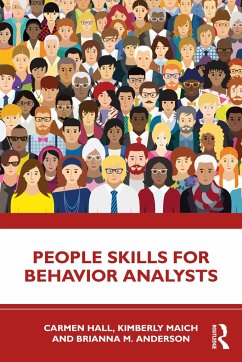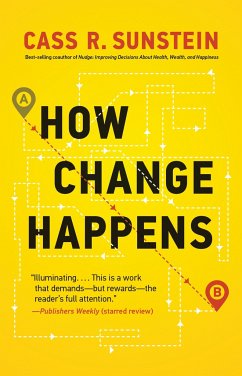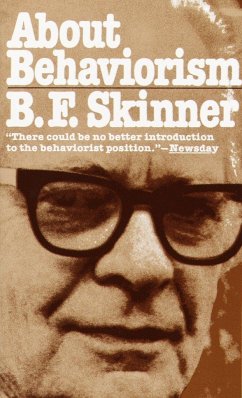
Behaviorism
Versandkostenfrei!
Versandfertig in 1-2 Wochen
62,99 €
inkl. MwSt.
Weitere Ausgaben:

PAYBACK Punkte
31 °P sammeln!
Watson was the father of behaviorism. His now-revered lectures on the subject defined behaviorism as a natural science that takes the whole field of human adjustment as its own. It is the business of behaviorist psychology to predict and control human activity














